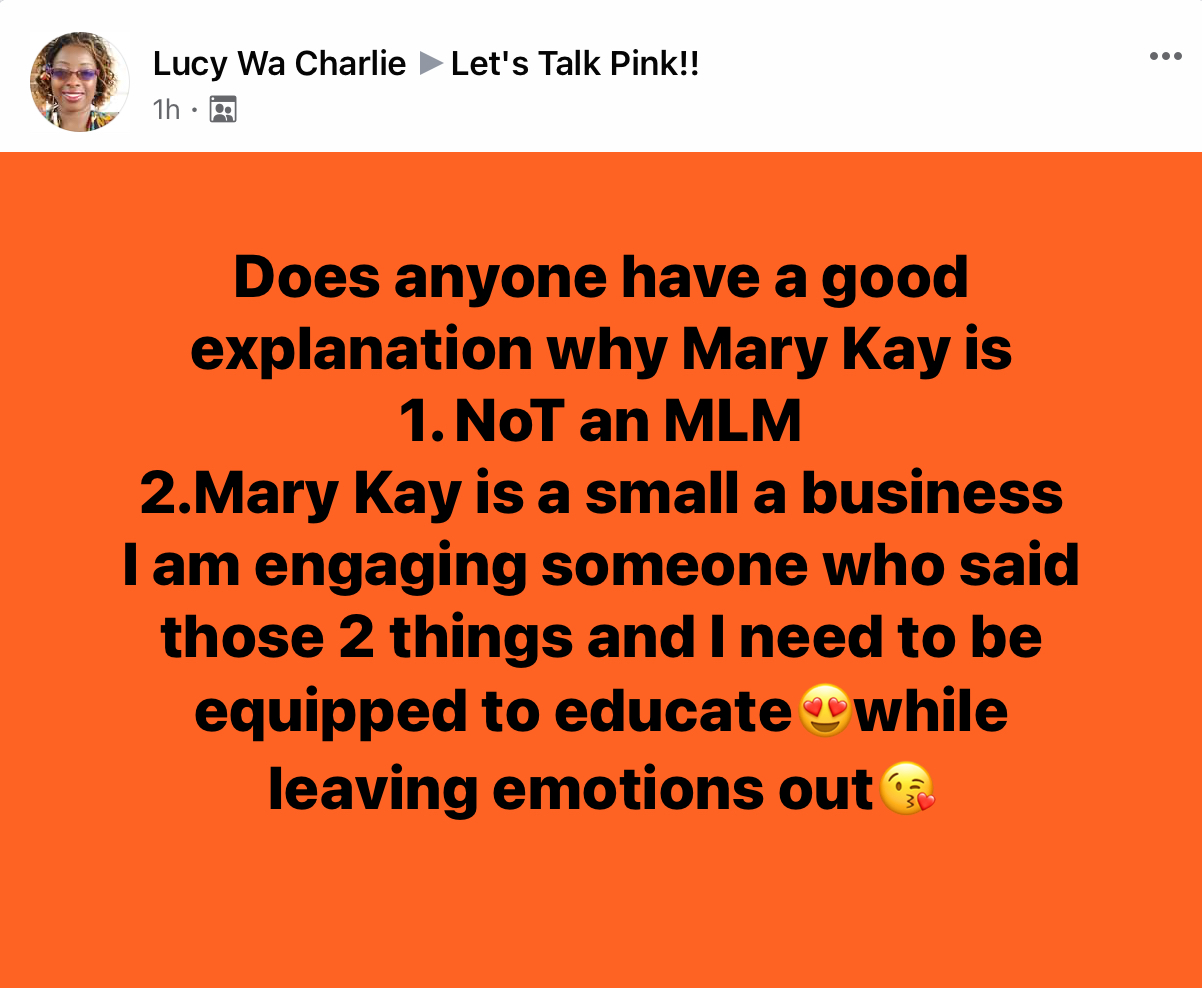The FTCs Warnings on MLMs
The FTC has issued some guidance to help people evaluate MLMs. Look at these and ask yourself how many of these really do point to your MLM.
Multilevel marketing plans, also known as “network” or “matrix” marketing, are a way of selling goods or services through distributors. These plans typically promise that if you sign up as a distributor, you will receive commissions — for both your sales of the plan’s goods or services and those of other people you recruit to join the distributors. Multilevel marketing plans usually promise to pay commissions through two or more levels of recruits, known as the distributor’s “downline.”
If a plan offers to pay commissions for recruiting new distributors, watch out! Most states outlaw this practice, which is known as “pyramiding.” State laws against pyramiding say that a multilevel marketing plan should only pay commissions for retail sales of goods or services, not for recruiting new distributors.
Why is pyramiding prohibited? Because plans that pay commissions for recruiting new distributors inevitably collapse when no new distributors can be recruited. And when a plan collapses, most people — except perhaps those at the very top of the pyramid — lose their money.
The Federal Trade Commission cannot tell you whether a particular multilevel marketing plan is legal. Nor can it give you advice about whether to join such a plan. You must make that decision yourself. However, the FTC suggests that you use common sense, and consider these seven tips when you make your decision:
- Avoid any plan that includes commissions for recruiting additional distributors. It may be an illegal pyramid.
- Beware of plans that ask new distributors to purchase expensive inventory. These plans can collapse quickly — and also may be thinly-disguised pyramids.
- Be cautious of plans that claim you will make money through continued growth of your “downline” — the commissions on sales made by new distributors you recruit — rather than through sales of products you make yourself.
- Beware of plans that claim to sell miracle products or promise enormous earnings. Just because a promoter of a plan makes a claim doesn’t mean it’s true! Ask the promoter of the plan to substantiate claims with hard evidence.
- Beware of shills — “decoy” references paid by a plan’s promoter to describe their fictional success in earning money through the plan.
- Don’t pay or sign any contracts in an “opportunity meeting” or any other high-pressure situation. Insist on taking your time to think over a decision to join. Talk it over with your spouse, a knowledgeable friend, an accountant or lawyer.
- Do your homework! Check with your local Better Business Bureau and state Attorney General about any plan you’re considering — especially when the claims about the product or your potential earnings seem too good to be true.





 Visit the
Visit the
Happy Anniversary Pink Truth!
Happy Birthday America, and Happy Anniversary Pink Truth!
Chelsea has a cheap laundry bag as an annoying reminder that she didn't get the trip.
At first I thought she was showing off a handkerchief, but then I read the the card sent with it.…
1,000,000% agree Jamie is a genuine butt-ugly mean girl. I have a sister who is directly from the bloodline of…